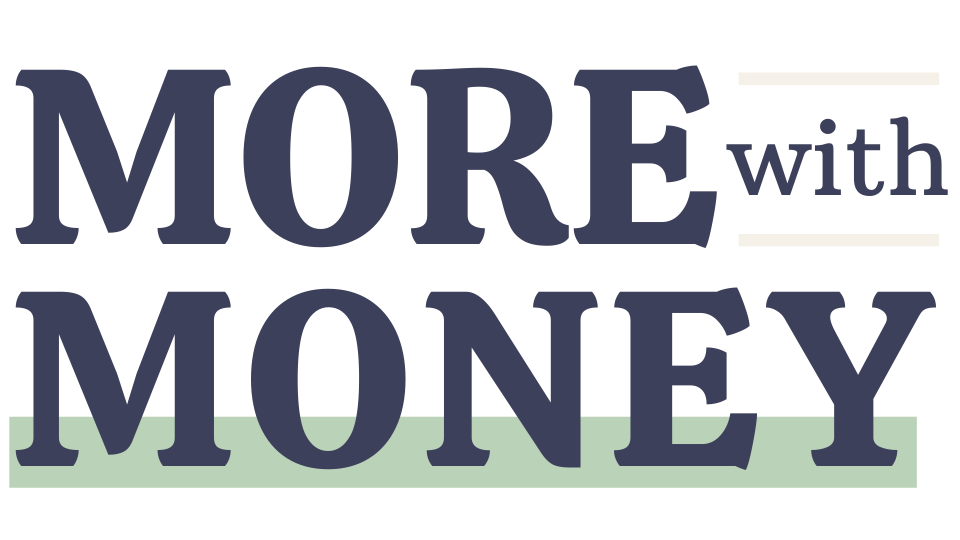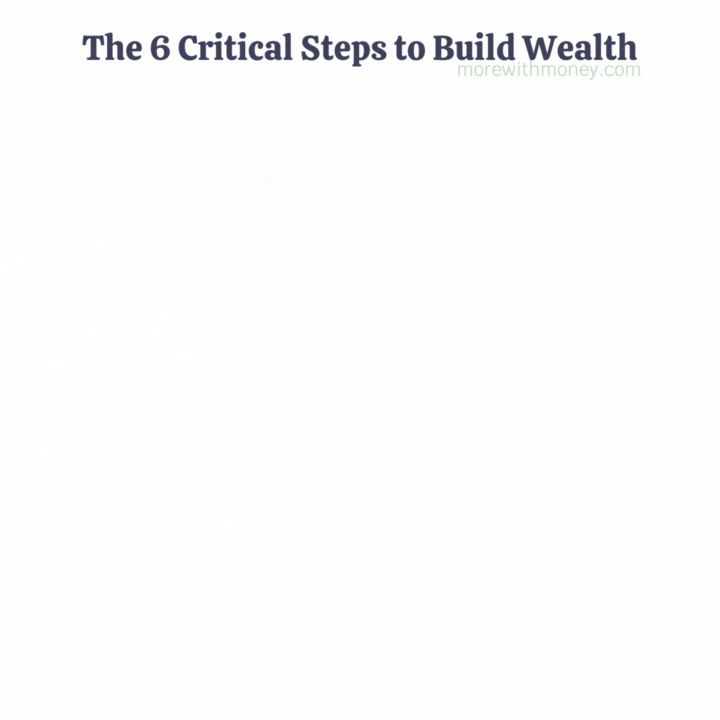5 Costly Mistakes You Make When You Set Financial New Year's Resolutions
As the end of the year approaches, it’s hard to resist the motivational wave of New Year’s Resolutions. Financial goals are one of the top resolutions set by people this time of year. And yet, if you’re like me, you’ve struggled to uphold your resolutions year after year. Let’s talk about the top 5 mistakes you’re making when setting your goals and how to fix them!
Mistake #1: You’re Being Unrealistic
New Year’s Resolutions come with a lot of ambitious energy, but it’s important to be realistic when setting any goal. Don’t try to do too much too soon or with too few resources!
Try setting a vision for the direction you’d like to head in, and then break that down into more achievable baby steps. Let the first step be your New Year’s Resolution. Then, when you achieve that, you can set your next goal and feel great for having made progress!
For example, maybe instead of saying that you want to save $50k next year, you could just set the intention to build your savings more. In order to do that, I know I need to actually have some freed up cash flow at the end of each month. So maybe my first goal is actually to create an additional income stream OR cut a cost that matters less to me right now.
Mistake #2: You Don’t Have a System in Place
Another part of setting goals that are realistic is making sure you actually have the capacity to reach those goals.
If I’m living paycheck-to-paycheck and always struggling to find the cash I need to cover my costs, I will have very minimal savings potential. But if I’m living comfortably within my means and I have a system for covering the inevitable little costs that tend to sabotage my savings plans, I can be a bit more ambitious.
I use YNAB to create clear plans and systems for achieving my financial goals >> Learn more about YNAB here!
Ensuring that you already have a way to make your resolutions a reality is a key component to setting a successful goal. If you don’t have a clear plan or system in place to help you get there, then THAT needs to become your resolution instead.
Mistake #3: You’re Prioritizing Out of Order
Again, this aligns with setting realistic and achievable goals. You don’t just want to set any financial goal just because it’s what you’re feeling. When you break down this vision you have for a better financial future, you need to break it down into achievable steps in the right order.
Why? I know not everyone likes to be told how to do things (looking at you, Enneagram 8s). But their is a logical flow for building wealth that’ll help you avoid the trap of “one step forward, two steps back.”
Mistake #4: You’re Not Being Flexible
Did you know that YNAB, my preferred budgeting program, teaches four simple rules to change your relationship with money? I bring that up because Rule #3 is to Roll With the Punches - and this rule is HUGE.
So many people get stuck in a cycle of setting a goal and then thinking that they have to sacrifice life and limb to make that goal a reality - if they don’t, they’re a failure.
I see this all the time with people setting restrictions on their budgets - “I’m only going to spend $X amount this month” - and then running themselves into the ground trying to stick to that plan. For what reason?
Your financial journey is not a game of performance. Stop setting arbitrary rules and limitations that make you feel bad when life happens and plans change.
Give yourself grace. If you set a goal to pay an extra $100 on your debt every month but your dog ate something and needed to go to the emergency vet, that’s okay. It doesn’t have to mean the end of your financial goals and resolutions for the year.
Which brings me to my next point…
Mistake #5: You’re Waiting For the New Year
This one is hard for me. I’m the kind of person who will try to set a new habit, mess it up Monday morning and say, “Well, maybe next Monday.”
Why not Tuesday? Why not later that afternoon? Because I like fresh slates. They’re clean, simple, and give me a good excuse to procrastinate change.
So believe me when I say that I know how hard this is - but you don’t have to wait until January 1st to change your financial legacy.
And if something goes wrong on January 2nd, you don’t have to wait another 12 months to reset.
Every day, every moment, is an opportunity to create a change. They key is to start small and start with where you’re at.
Set Your Financial New Year’s Resolutions
Start with a big-picture intention for the year (or upcoming season of life). This is a vision where you’ll feel successful as long as you move towards it to some degree, even if only a tiny bit.
Evaluate what’s realistic and achievable for you based on where you’re at. Think about your starting circumstances, the systems and plans you have in place to achieve your goals, and the steps you need to take to lay the right foundation for progress.
Break down your goal into more achievable baby steps, and let your New Year’s Resolution be Step #1.
Think this through to yourself: What will you do if you fall off the wagon? How and when will you reset? What can you do today to make it as easy as possible for you to get back on track as easily as possible later?
Check out the More With Money Academy!
This ever-growing collection of online courses and trainings are specially designed to support entrepreneurs like you on your path to financial wellness. The Academy contains carefully designed courses that are easy to understand and implement so that you can be empowered with the practical concepts, streamlined systems, and powerful mindset to transform your business and personal finances.
Click here to explore what the More With Money Academy has to offer!
I'd love to continue the conversation in the comments! Feel free to share your thoughts.
Until next time!








